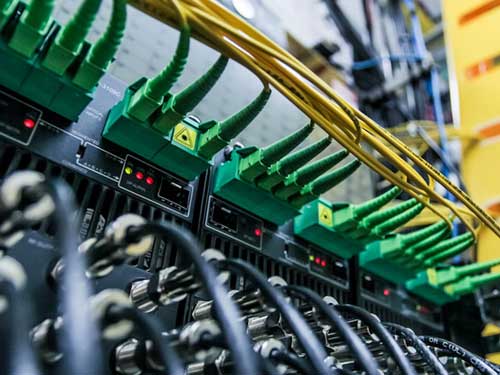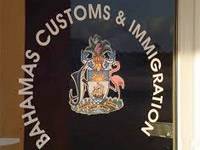 Cable Bahamas Ltd announced that it is implementing a major increase in its international connectivity to the rest of the world as part of its ongoing network optimisation plans.
Cable Bahamas Ltd announced that it is implementing a major increase in its international connectivity to the rest of the world as part of its ongoing network optimisation plans.
On Monday, May 13 it will boost its capacity between The Bahamas and its primary and secondary connection points to the global Internet in the United States by over 220 per cent, or a more than six-fold increase since its undersea fibre was launched over ten years ago.
On April 22, Cable Bahamas formally launched an increase in subscriber bandwidth speed between 500 and 1,000 per cent, moving its former speed levels of 3, 6 and 9 megabits per second for residential subscribers to 15, 30 and 50 megabits per second respectively. It also introduced a new speed level of 70 megabits per second for residential customers, and up to 500 megabits per second for commercial establishments. This was the first time broadband speeds of these levels have been available in The Bahamas.
Since that launch, Cable Bahamas has seen an increase in Internet data usage of 20 per cent. “We expected that our subscribers would begin to place greater demands on our network as we opened up new speeds to them,” said Cable Bahamas Director of Network Operations Oswald Dean. “And that is exactly what has happened. Our customers have had such a great experience with their new speeds that we saw a 20 per cent jump in Internet data usage in the first three weeks. They love being able to more quickly and reliably access services that need more speed, like video streaming, video chat and more demanding business applications,” Dean said.
According to Head of Marketing and product manager for the REVON Internet product David Burrows, “Cable Bahamas is in the forefront of enabling and maintaining our country’s vital links for commerce and trade.” Mr. Burrows continued, “Over the last year we have been delivering an average 23 terabytes of data per month through our network. Since the launch of our new speeds this has increased to over 28 terabytes per month. That increasing demand for traffic throughput was the motivating factor behind the move to increase the international bandwidth.”
Mr Burrows explained that The Bahamas’ communication link to the rest of the world is as important to the country’s existence as is air and sea travel. “Ships bring us food and commodities that we need to survive, while planes bring visitors that boost our tourist economy. Today, so much of our lives are now dependent on how we connect to the rest of the world that our economy would be severely hindered without that robust communications link.”
He further emphasised that, while many residents are focused on their own home and personal Internet uses, a reliable data connection is the foundation of local commerce, enabling everything we do from education, international finance, hospitality, healthcare, emergency services, retail, travel and shipping. “Data and information is the ‘new currency,'” Mr Burrows said. “As such, we must ensure that the networks that facilitate these critical services are designed, engineered, sufficiently scaled and reliable to meet present and, more importantly, future demands.”
Mr Burrows referred to a report by the ITU (International Telecommunications Union), which highlighted the importance of fast, reliable connectivity for any country’s economy. “We know that broadband connectivity is now considered basic infrastructure, and this delivers important economic and social benefits,” Burrows said. “In every country in the world, these networks are now just as important as transport, power or water networks. In fact, a broadband network like ours is the lifeline of almost every area of our economy.'” Mr Burrows stated, “It is vital for The Bahamas to have this infrastructure as an island nation in the 21st century to stay ahead of our regional competitors.”
Mr Dean explained that the off-island bandwidth boost was a strategic progression in the company’s network evolution plans. “This increase in our international ‘pipe’ will ensure that we are always ahead of the demands of our consumers,” he said.
The work required to put the necessary infrastructure in place began almost six months ago, and included upgrading key transport equipment and new training for more than eight engineers and technicians on the team responsible for the network.
Vice President of Information and Telecom Systems Blaine Schafer explained: “This is the result of what we call ‘capacity planning’. We project our subscribers needs and plan accordingly,” Mr Schafer said. As people rely more and more on the broadband speeds we provide, they will start to consume more capacity. Our job is to anticipate and respond to that demand.”
Internet traffic management company Sandvine has been assisting Cable Bahamas in its efforts to monitor, manage and respond to the constantly changing demands on its network.
“As the communications market and Internet usage have evolved, service providers such as Cable Bahamas look for ways to improving the subscriber experience,” said Tom Donnelly, Sandvine’s chief operating officer. “Cable Bahamas’ management team has been dedicated to the optimization of the Internet experience for their subscribers, and has deployed Sandvine’s Business Intelligence solutions to help understand and respond to how subscribers are experiencing the network, usage trends, and what service tiers may be attractive in the future.”
“In addition,” Mr Donnelly continued, “this gives Cable Bahamas the ability to benchmark themselves against global Internet Phenomena trends.” Sandvine’s Business Intelligence products forecast long-term trends in consumer experience and resource utilization so that operators can proactively decide where to allocate resources and spending. Sandvine’s Traffic Management uses network data to apply business rules in real-time, protecting subscribers’ quality of experience under all network conditions.
Press Release by Cable Bahamas



